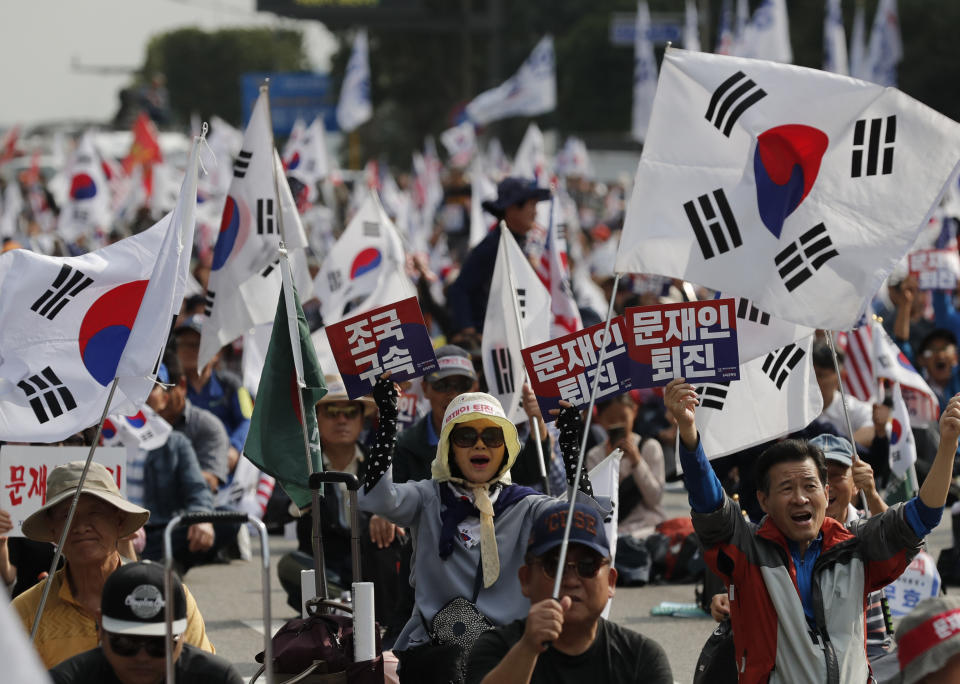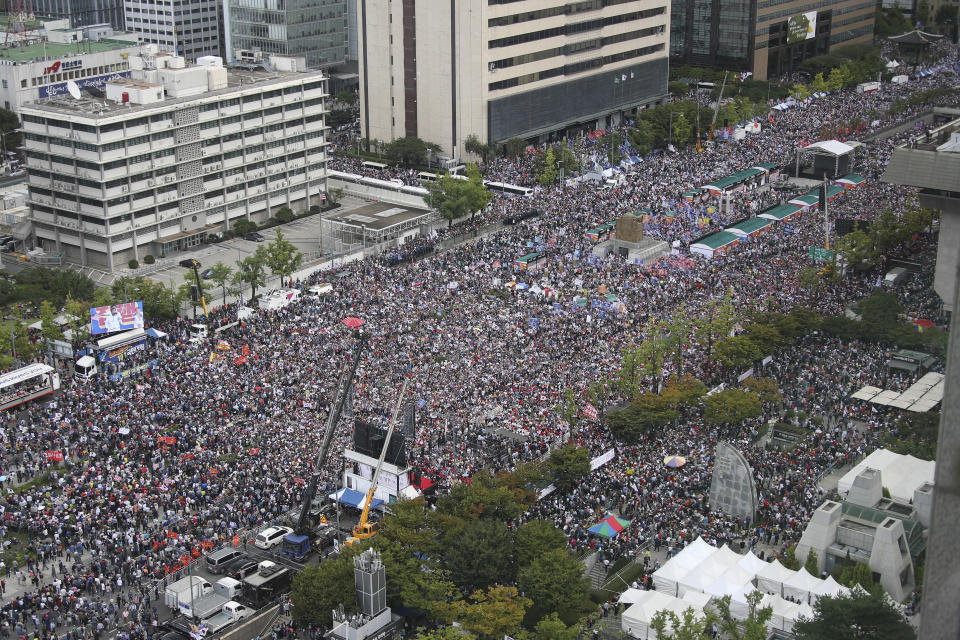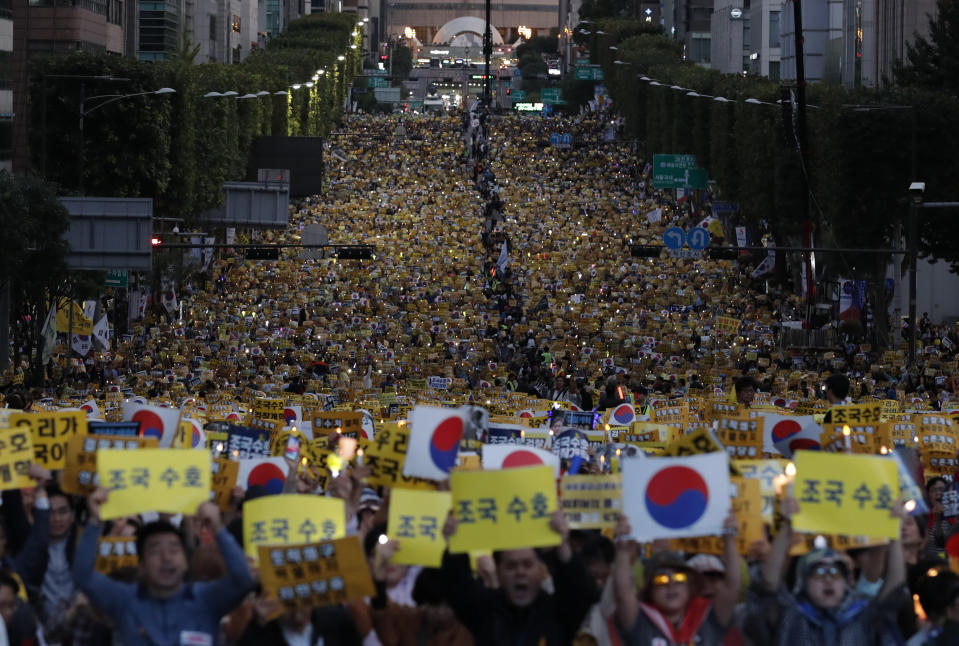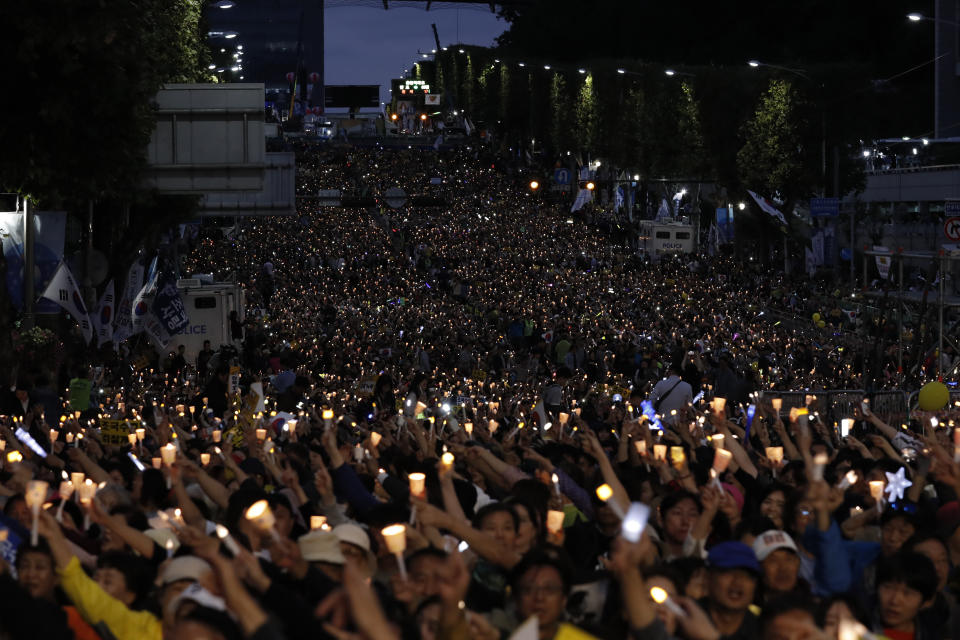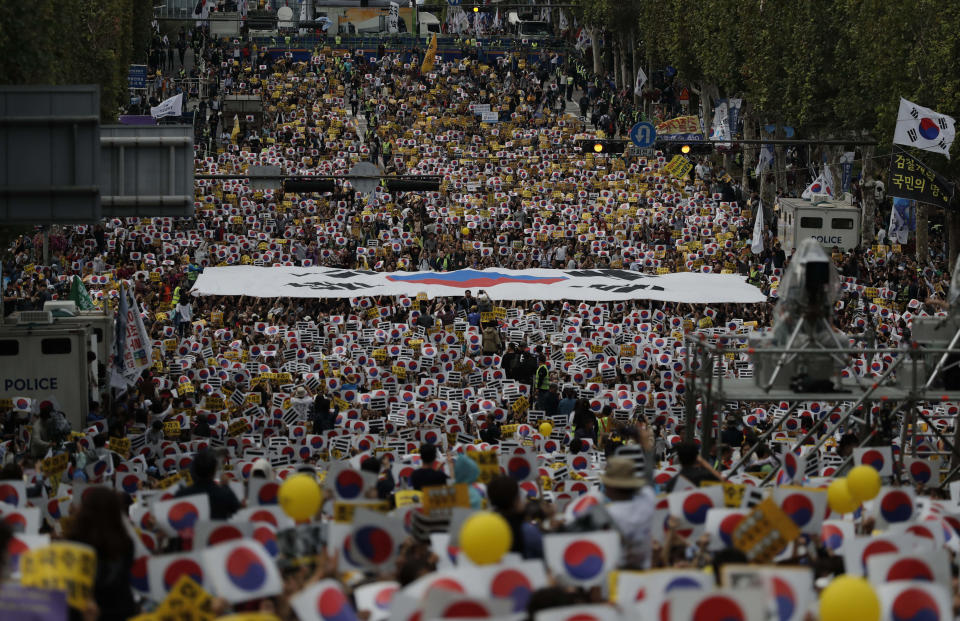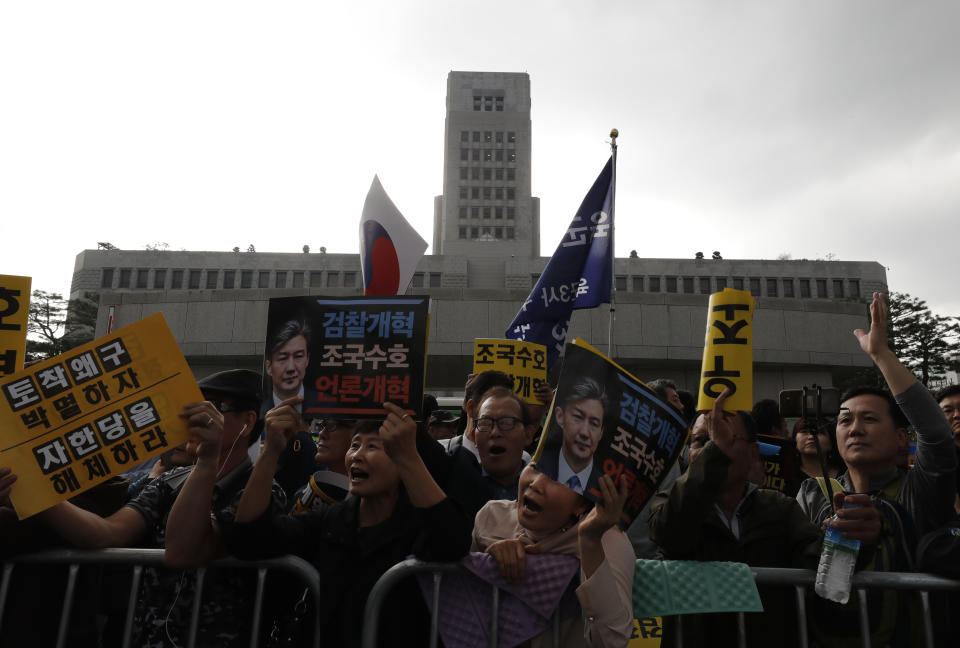Gov't supporters rally in Seoul over beleaguered minister
SEOUL, South Korea (AP) — Thousands of government supporters swarmed the streets of South Korea's capital on Saturday to voice their support for the country's justice minister as he faces growing pressure to resign amid a criminal investigation into suspicions of financial crimes and academic favors surrounding his family.
The rally in front of state prosecutors' offices in Seoul came days after huge crowds poured onto a major boulevard near the city's presidential office demanding the ouster of the minister, Cho Kuk, a close confidant of President Moon Jae-in.
The protests and counter-protests occupying streets separated by the Han River that cuts through Seoul illustrate how the months-long saga over Cho, described by pundits as a "civil war," has further polarized a nation already grappling with deep divides along political and generational lines.
The pro-government demonstrators, responding to the battle cries of Moon's ruling Minjoo party and the president's unwavering support for Cho, see the ongoing investigation into Cho's family as an attack on the liberal Moon administration.
They believe prosecutors are pushing an aggressive probe to rattle Cho, who has been considered a future presidential hopeful for the liberals, because his reform plans include curbing the powers of state prosecutors.
Carrying banners, yellow balloons and signs that read "Protect Cho Kuk" and "Reform the Prosecution," protesters occupied an avenue in front of the Seoul Central District Prosecutors' Office, roaring, singing and chanting in support of Cho.
"The candles you hold today will lead us past the darkness," novelist Lee Woe-soo, a vocal supporter of Moon, said from a stage as the rally stretched into the evening. "We will absolutely win."
Cha Seon-ah, a student from Seoul, said prosecutors were investigating despite a paucity of evidence.
"Cho Kuk is the only person who can reform the prosecution," she said on the stage. "We love you, Minister Cho!"
Police did not provide an estimate on the size of the crowd, which appeared to be in the tens of thousands. The protest was proceeding peacefully and there were no immediate reports of major clashes or injuries as of Saturday evening.
Earlier on Saturday, prosecutors for the second time this week summoned Cho's wife, Chung Kyung-shim, who they indicted last month on suspicions of manipulating an award issued to her daughter from a university where she works as a professor.
Allegations that Cho's daughter received special treatment in her admissions to a top Seoul university and a Busan medical school have struck a nerve in a country where teenagers toil in hyper-competitive school environments because graduating from elite universities is seen as crucial to career prospects.
Chung is also suspected of involvement in running a private-equity fund financed by Cho's family that allegedly made dubious investments while Cho served as Moon's secretary for civil affairs until July. Prosecutors on Thursday indicted a relative of Cho, who they arrested last month over suspicions of fraud, embezzlement and attempting to destroy evidence linked to his management of the fund.
Cho, who for years built a reformist image, has denied legal wrongdoing.
There were sporadic clashes on Thursday when an estimated hundreds of thousands rallied in streets near the presidential Blue House demanding that Cho step down. These were the same streets where millions marched for months three years ago calling for the ouster of Moon's conservative predecessor Park Geun-hye, who was removed from office in March 2017 and is currently serving a decades-long prison term over bribery and abuse of power.
In South Korea, prosecutors have exclusive authority to indict and seek warrants for criminal suspects and exercise control over police investigative activities. They can also directly initiate criminal investigations even when there's no complaint.
Critics say such powers are excessive and have prompted past conservative governments to use the prosecution as a political tool to suppress opponents and carry out vendettas. Moon's supporters often cite the tragic case of former liberal President Roh Moo-hyun, Moon's political mentor, who leaped to his death in 2009 after prosecutors under the government of his conservative successor Lee Myung-bak pushed an aggressive investigation into corruption allegations surrounding his family.
The conservatives, now the opposition, say the ruling liberals are pressuring prosecutors over a legitimate criminal probe surrounding a key member of their government.
The conservatives point out it was Moon's government that empowered Prosecutor-General Yoon Seok-yeol after he led the criminal investigation against Park, and the liberals only began complaining after Yoon opened an investigation into Cho's family following complaints filed by opposition lawmakers.
Moon, who encouraged Yoon to "strictly" investigate any wrongdoing by the government or ruling party when appointing him as top prosecutor in July, has stood firmly by Cho.
The controversy surrounding Cho has cut into the approval ratings of Moon, who also faces pressure over a bad economy, an uphill trade war with Japan and a fragile diplomacy with North Korea that's beginning to fall apart — alarming developments for the liberals ahead of crucial parliamentary elections next spring.
